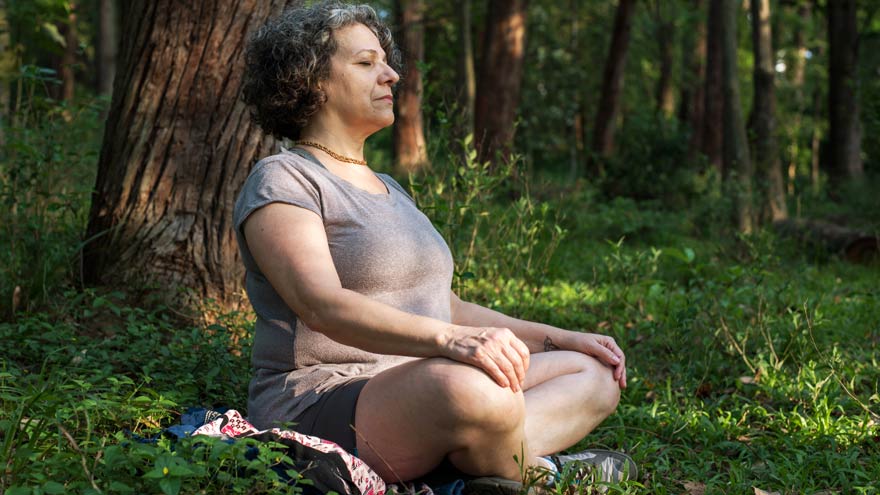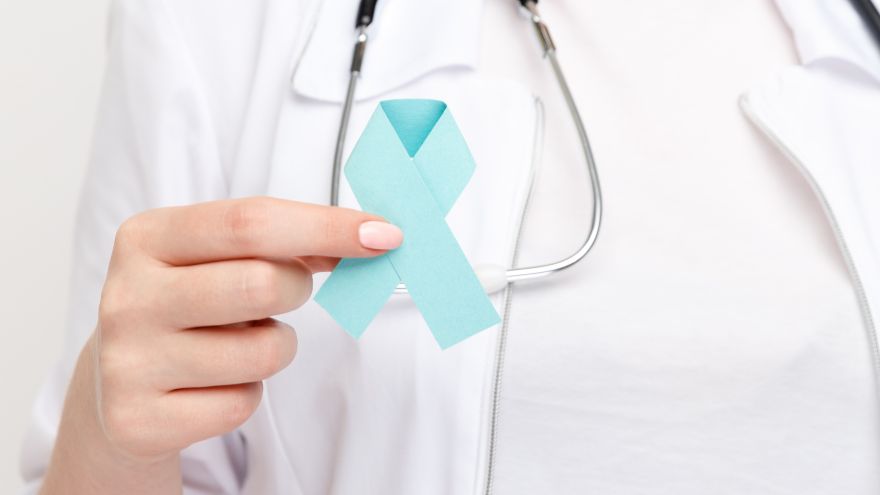Search
-
Perseverance and Physical Therapy Help UNR Student Walk Again
University of Nevada, Reno student Khoa Le was paralyzed in 2010 after a longboarding accident. Through physical therapy, a positive attitude and sheer will, Le is walking again. This weekend, Le will walk across the commencement stage to accept his college diploma. “Walking around on my own power is just the greatest feeling,” says Khoa Le, a senior at the University of Nevada, Reno. Just after finishing summer school at the university in July 2010, his whole life changed within seconds after stepping on a longboard skateboard for the first time. He lost control of the board and hit the curb, causing paralysis on the left side of his body. His journey to recovery began at Renown Health Physical Therapy & Rehab. His physical therapist, Dina Barry, says he never complained once in four years. “I started seeing Khoa in April 2011, and we worked for four years together,” says Barry, a lead physical therapist at Renown. “Everything I’ve ever asked him to do, he does. Le is a hard worker, is continuously optimistic and smiling, and I think that is why he’s accomplished what he has.” Le plans to pursue a career as an information systems manager.
Read More About Perseverance and Physical Therapy Help UNR Student Walk Again
-
Do You Resolve to Lose Weight and Live Healthier? Here's How.
Weight loss and healthier living tend to top most people’s lists of New Year’s Resolutions. So if you’re like the vast majority, here’s help — a comprehensive look at all of Renown Health’s programs that will help you lose weight and tackle metabolic challenges. Quick quiz: How many of the following apply to you? You have a need to lose weight, but you haven’t been guided on how to make sustainable change; You’re experienced a recent rapid weight gain, but lab tests didn’t reflect a change in your health; You’ve experienced a life-changing event that caused weight gain; You have problems with where you are carrying your weight, such as your mid-section; You’ve tried other weight loss programs, but they didn’t work. If you found yourself nodding in agreement to any one of the above statements, Renown’s programs can help. They cover the spectrum of helping with weight or metabolism challenges. But the million dollar question is: Where do you start? How to Lose Weight and Live Healthier Ideally, it’s best to start by talking with your primary care provider. Your provider knows your medical history and concerns related to your health. Talk to your provider about your past history with weight loss and gain. Your primary care provider will assist with the referral process and provide you with options you might not considered on your own. Most importantly, by starting with your primary care provider, you can take full advantage of all your health benefits. Renown offers four weight loss/management programs: Medical Nutrition Therapy Meet one-on-one with a Registered Dietitian at Renown’s Health Improvement Program to discuss your health goals. You may qualify for this program if you have: Heart or kidney disease Gastrointestinal issues Weight gain or weight loss Food allergies or sensitivities High blood pressure or high cholesterol A thyroid condition Diabetes – classes available, including: Type 2 Diabetes, insulin and gestational diabetes management during pregnancy (Offered in English & also in Spanish). For more information, call 775-982-5073. Medical Weight Management This program includes a one-on-one appointment with a board-certified bariatric doctor. You will receive a comprehensive evaluation and customized treatment plan to meet your needs and medically manage your overweight or metabolic challenges. Treatment options in this program may include nutrition changes, meal replacements, medication, exercises and also behavioral therapy. Here are a few qualifications for the program: A BMI of 25 or higher and health risk such as Type 2 diabetes, obstructive sleep apnea, cardiovascular disease, stroke, gout, osteoarthritis, infertility or polycystic ovarian syndrome A BMI of 30 and higher A metabolic problem such as diabetes, fatty liver and is not responding to regular medical care. Those with a metabolic problem may be considered normal weight, however may need to lose fat mass or reduce their waist size to get healthier. An increased risk of heart disease, stroke or Type 2 diabetes, regardless of weight that is not responding to regular medical care. For more information, call 775-982-5073. Bariatric Weight Loss Surgery We understand that the desire to have bariatric surgery is a choice you are making for your long-term health. Our team provides education on the necessary steps before, during and after surgery to ensure you are successful in controlling your obesity. You may qualify for this program if you have: A BMI of 40 or more, or: A BMI of 35 to 39.9 with significant health problems such as hypertension, high cholesterol, sleep apnea, diabetes or diagnosed arthritis To learn more, visit our Bariatric Surgery. You may also attend one of our monthly Weight Loss Surgery Seminars to learn if you are a candidate. Dietary Consultation at Renown Medical Group Many people aren’t aware that you can schedule short, frequent visits with a registered dietitian at Renown Medical Group locations in Reno or Sparks. Telehealth is also available at the Renown Medical Group – Fernley. Qualifications include: A BMI of 30 or greater You have a primary care provider with Renown Medical Group Medicare or Senior Care Plus member Since this program is only offered through Renown Medical Group, you must be an established patient. To establish with a primary care provider, call 775-982-5000. Talk to your primary care provider to see if you qualify for one of Renown’s weight management programs. Going through the referral process is the best way to ensure you are taking full advantage of your health benefits.
Read More About Do You Resolve to Lose Weight and Live Healthier? Here's How.
-
Low Back Pain – How to Stop the Ache
Low back pain is not only a problem most people have at some point in life, but also the leading cause of disability in the U.S. Whether it is a sharp spasm from lifting something heavy or a daily constant ache, there are various treatments available to relieve your pain. Jessica Ryder PT, DPT, cert VRS, with Renown Health Outpatient Therapy, explains some common causes of this pain, how to treat it and ways to prevent pain flare-ups. It’s important to realize most cases of low back pain are short term. Frequently lasting only a few days or weeks. In general these cases leave no long-term damage to the spine, muscles, discs or nerves. “However, it can become episodic or chronic (lasting longer than 12 weeks) if it is not properly understood or managed by the individual, ” cautions Ryder. Causes of Pain Specifically back discomfort can be related to: Wear and tear on the spine due to age or poor movement patterns Injury to spinal discs Sprains (overstretching or tearing of ligaments) and strains (tears in tendons or muscles) Trauma Irregularities of the spine present at birth (example: scoliosis)Notably the above issues may result in a “pinched nerve” or sciatica, causing pain to extend down the leg. Risk Factors for Pain In particular, your chance of developing low back pain increases with the risk factors below: Age Being overweight Low fitness level or occasional physical activity (“weekend warrior”) Family history Pregnancy Poor posture Jobs requiring heavy physical work (landscaping, plumbers, construction, etc.)
-
What is Disordered Drinking?
An alcohol problem can affect anyone at any age. Many factors, including job stress, genetics or depression, may contribute to the start of disordered drinking. Drinking alcohol exists on a continuum. For example, if someone feels down in the dumps for some time, it doesn’t mean they are clinically depressed. So if someone goes through a period with above-normal alcohol consumption, it doesn’t necessarily mean they abuse alcohol. Although “alcoholic” and “alcoholism” are common, they are not clinical descriptions. Alcohol use disorder is the preferred term. Symptoms are often mild but can be the start of a more significant problem. According to the National Institutes of Health (NIH), over 16 million adults live with alcohol use disorder. Symptoms of Alcohol Use Disorder Do you recognize any of the following symptoms in yourself or someone you know? Drinking more or longer than intended Trying to cut down or stop drinking but not able to Having to drink more than you once did to get the same feeling Being annoyed when family members discuss your drinking Regretting your behavior while you were drinking
-
Learn How to Manage Lymphedema
Katherine Bunker, Physical Therapist and Certified Lymphedema Therapist (PT, DPT, CLT) at Renown, discusses how patients can manage lymphedema with changes to daily routines along with diet and exercise. Lymphedema is a condition that affects millions of people around the world. It is a chronic and progressive disorder that results in swelling of the arms, legs, or other parts of the body due to an accumulation of lymph fluid. Lymphedema can occur because of cancer treatments, surgery, or other medical conditions. Managing Lymphedema Treatments to help reduce symptoms such as pain, swelling and discomfort associated with lymphedema can include compression garments, exercise, skin care, manual lymphatic drainage and pneumatic compression. The goal is to avoid triggering the onset of lymphedema. Lymphedema can present itself immediately after surgery or radiation. It can appear months later or even years later. There are many factors that influence the development of lymphedema which is why prevention is so important. If you have had injury or disruption to your lymphatic system, then: Avoid injuries to the skin near the affected area. For example: wearing gloves during gardening, using bug spray to ward off mosquitos, covering your limbs while playing with pets, keeping nails clean and avoiding cutting too close to cuticle, utilizing electric razors at the armpit (instead of a traditional razor)., Avoid blood pressure readings to the affected limb or request blood pressure to be taken manually, not by a machine. Avoid heat like saunas, hot tubs, sunburns, hot packs, and even massages. Avoid tight jewelry like rings or bracelets, which can be too tight.
-
Thomas S Dolan Pulmonary Rehabilitation Program
The program becomes first of its kind to be accredited in Nevada Renown Health is pleased to announce the certification of the Thomas S. Dolan Pulmonary Rehabilitation program at Renown South Meadows Medical Center by the American Association of Cardiovascular and Pulmonary Rehabilitation (AACVPR). AACVPR certification demonstrates that an organization's Pulmonary Rehabilitation Program is aligned with current guidelines set by the American Association of Cardiovascular and Pulmonary Rehabilitation for appropriate and effective early outpatient care of patients with cardiac or pulmonary issues. Certification offers peace of mind, so that patients can feel confident in knowing that staff has the experience and skills necessary to coordinate the many issues faced by people receiving a life-changing cardiac or pulmonary diagnosis. Pulmonary rehabilitation programs help people with health issues such as asthma, chronic bronchitis, pulmonary fibrosis, or chronic obstructive pulmonary disease (COPD) recover faster and live healthier. “Having access to quality pulmonary rehabilitation services so close to home, staffed by a highly skilled group of compassionate care providers, truly is a gift to our community,” said Tony Slonim,MD, D.Ph., president and CEO of Renown. “We are extremely proud of the work being done in our pulmonary rehabilitation program, and also forever grateful for Tom Dolan’s donation to the program in 2019, which empowers Nevadans to improve both their health and quality of life.” “Thomas S. Dolan Pulmonary Rehabilitation is the only accredited pulmonary rehabilitation program in the state of Nevada,” said Renown South Meadows Medical Center and Rehabilitation Hospital Vice President Chris Nicholas. “We take pride in this distinguished honor from the AACVPR as it acknowledges and amplifies the life-changing work happening here. Our dedicated caregivers provide support to our patients every step of the way, helping them lead vibrant and fulfilling lives despite their health conditions.” The comprehensive pulmonary rehabilitation program at Renown South Meadows Medical Center offers treadmills, stationary bicycles, strength training and an education classroom to help patients achieve health goals. To earn accreditation, Renown’s pulmonary rehabilitation program participated in an application process requiring extensive documentation of the program’s practices. AACVPR Program Certification is the only peer-review accreditation process designed to review individual programs for adherence to standards and guidelines developed and published by AACVPR and other related professional societies. In November 2019, Tom Dolan, owner and founder of Dolan Auto Group, donated to the Pulmonary Rehabilitation at Renown South Meadows Medical Center after his personal experience thriving in pulmonary rehabilitation brought northern Nevada’s capabilities, and needs to his attention. His generous donation has allowed Renown to double the number of patients who receive treatment and increase the access to pulmonary rehab in our community. “As a former patient myself, I found so much benefit in my pulmonary rehab,” said Dolan. “I have always wanted to support this program and increase the number of people it serves. It’s great to see that we now have the only certified pulmonary rehab in Nevada. “The most essential component of lung health is breaking the cycle of inactivity associated with lung disease,” said Lung Critical Care Physician Dr. Farah Madhani-Lovely. “Our community is fortunate to have an accredited program like this to empower our patients.” About AACVPR Founded in 1985, the American Association of Cardiovascular and Pulmonary Rehabilitation is a multidisciplinary organization dedicated to the mission of reducing morbidity, mortality and disability from cardiovascular and pulmonary disease through education, prevention, rehabilitation, research and disease management. Central to the core mission is improving the quality of life for patients and their families. Learn more about AACVPR at www.aacvpr.org.
Read More About Thomas S Dolan Pulmonary Rehabilitation Program
-
Stay Inside When Skies Are Smoky
Even when fires burn outside our area, the air quality in the region can reach dangerous levels. Our expert explains how to maintain your lung health when fire season strikes. It’s a sight we know all too well as northern Nevadans — a hazy or thick layer on the horizon when smoke rolls in from nearby fires. Sometimes the smoke is more evident than others, but it’s important to remember, even when the smoke may not be as visible across the valley, it still impacts our air quality. The last week or so, our air quality has been in the “unhealthy for sensitive groups” range, which can be dangerous for people who are sensitive to air pollution. Air Quality Changes: Who’s at Risk? Renown Pediatric Pulmonologist Sonia Budhecha, M.D., explains certain people are especially at risk when smoke moves in: Older people, whose lungs are not as healthy as they used to be Young children, whose lungs are still developing People with heart and lung disease including asthma, COPD and emphysema “Smoke and haze from fires carry particulates that can get into your respiratory system and eyes, which can be a danger for all ages,” Dr. Budhecha says. How You Can Protect Yourself Until the smoke clears and the air returns to the “good” range, it is best to follow these tips to protect yourself and your family: Stay indoors and keep windows closed Turn on the air conditioning to recirculate clean air Drink plenty of fluids to help your body flush out any toxins you inhale Additionally, all community members should reduce their physical activity and try to prevent heavy exertion outside. If you or a loved one has a heart or lung disease, avoid physical exertion altogether because smoke can aggravate these conditions. “People with heart disease may experience shortness of breath, chest pain, palpitations or fatigue,” Dr. Budhecha says. “People with lung disease may also have shortness of breath, chest discomfort, wheezing, phlegm or a cough.” Smoky Signs and Symptoms Smoke can also impact healthy people — irritating your eyes, nose or throat. And in some cases, inhaling smoke can lead to bronchitis. When haze moves into our area, keep an eye out for these symptoms: Burning or stinging eyes Runny nose Cough or scratchy throat Headaches Wheezing Shortness of breath Difficult taking a full breath Chest heaviness Lightheadedness Dizziness If experiencing any of the above symptoms, seek medical attention or call your doctor for advice. Sometimes, these symptoms do not appear for as long as 24 to 48 hours after smoke inhalation. For those that have pre-existing lung or heart conditions, consult with a health care provider on action or management plans. To schedule an appointment Visit Renown Pulmonary Medicine, or call 775-982-5000. Understanding Our Air Quality The Air Quality Index (AQI) is broken down by large (PM10) and small (PM2.5) particulates. According to Dr. Budhecha, large particulates are usually ones that can be seen and smelled. They can damage your eyes and nose but don’t often get deep in the lungs or blood vessels. “The more dangerous ones are PM2.5, which can’t always be seen or smelled,” Dr. Budhecha says. “Any time the AQI is above 51, children with lung or heart disease should not be outdoors.” For the latest air quality update in your area, visit AirNow.gov or call (775) 785-4110.
-
How Philanthropy Helps Address Gaps in Care
In Nevada, we are so fortunate to have a number of not-for-profits and philanthropists who are supporting our mission at Renown Health; we couldn’t do it without them. In the world of healthcare, we are doing well in driving community benefit programming through operations. However, the things our communities need investments in are so much broader than we might be able to afford on our own. That is why it is essential for us to be supported by the people who are so in love with this community and want to assure we get the kinds of services and care for those who can’t afford it or add new services that are contemporary and leading edge that have not been offered here before. Establishing Behavioral Health & Addiction Institute We are so excited to receive a very generous donation from Chuck and Stacie Mathewson for the Stacie Mathewson Behavioral Health & Addiction Institute. This institute is so sorely needed in northern Nevada. Renown Health has a very important role in being able to bring attention to this important problem of mental health and addiction challenges in northern Nevada. Keeping Pediatric Care Close to Home One of the most important areas where philanthropy comes in handy for us at Renown Health is by assuring that we have the foundational programs that we would not be able to afford with operations alone. For example, the William N. Pennington Foundation’s generous gift has allowed us to create 15 pediatric specialty areas here in northern Nevada so children who have an illness or injury no longer need to leave town. The William N. Pennington Foundation supported Renown Children’s Hospital in a way that we never would have been able to support on our own. We are eternally grateful, and their gift — that 100,000 children are assured access to contemporary health and healthcare services — is beyond comprehension.
-
What Is the Role of a Child Life Specialist?
What is the role of the child life specialist? Here are common questions and answers about how these special individuals give both parents and kids peace of mind. Let’s face it: A hospital can be an intimidating place for just about anyone. But add in being a small human with very little worldly experience — aka a child — and it’s easy to imagine how overwhelming a hospital visit can be. Enter the role of the child life specialist. Liz Winkler, a child life specialist with Renown Children’s Hospital, explains how a Renown program puts young patients and their families at ease. What does a child life specialist do? Child life specialists help young patients develop ways to cope with the anxiety, fear and separation that often accompany the hospital experience. They give special consideration to each child’s family, culture and stage of development. As professionals trained to work with children in medical settings, specialists hold a bachelor’s or master’s degree in the areas of child life, child development and special education or recreational therapy. Our child life specialists are also professionally certified and affiliated with the national Child Life Council. Child life specialists also offer tours of Renown Children’s Hospital for families whose children are scheduled to have surgery. Child life supports children and families by: Helping children cope with anxiety, fear, separation and adjustment Making doctors, needles and tests a little less scary Providing art, music and pet therapy Organizing activities Addressing your concerns Telling you what to expect Creating a therapeutic and medical plan Offering a hand to hold What else is available at the Children’s Hospital that helps ease some of the stress of a hospital visit? Whether it’s seeing a pediatrician, getting a sports physical or looking for advice, our care is centered on supporting and nurturing patients and families at our many locations. We have kid-friendly environments to help ease some of the stress of a hospital visit. These include colorful exam rooms, kid-friendly waiting and common areas, and medical equipment designed especially for children. Our children’s ER is open 24 hours a day, seven days a week. So parents and caregivers have access to emergency care tailored to little ones — anytime, day or night. We have several pediatric specialists on the Renown team in areas including diabetes, emergency medicine, neurology, pulmonology, blood diseases and cancer. How can parents start to ease their children’s mind when they know a hospital visit is in the future? As with many things in life, good preparation can help kids feel less anxious about the experience and even get through recovery faster. It’s important to provide information at your child’s level of understanding, while correcting any misunderstandings, and helping to eliminate fears and feelings of guilt. If you’re anxious and nervous, your child may reflect these feelings and behaviors. So make sure you educate yourself, feel comfortable with the process, and get your questions answered.
Read More About What Is the Role of a Child Life Specialist?
-
Healthy Aging 5 Tips to Improve Happiness and Quality of Life
There are a few simple ways to encourage healthy aging that can translate to an improved quality of life. Here are some expert tips. What does healthy aging mean to you? If you’re like most people, you’re looking forward to removing the negative from your life — negative energy, thoughts, people and activities that don’t contribute to your best life. And while that’s a noble goal, too often we forget about ways to strengthen the positive parts of our lives. Expert Herbert “Buddy” Coard III, Ed.D, psychologist with Renown Behavioral Health, provides us with five positive behaviors to focus on to improve happiness and life satisfaction. Healthy Aging in 5 Easy Steps: 1. Connect – Make connections with friends, family, colleagues and neighbors. When you build strong connections, they can help enrich your life with new experiences and opportunities. Besides, having a support system to call upon when you need a favor is valuable as you age. 2. Be Active – Make time to get moving and work those muscles. Being active can include walking, practicing yoga, playing a game of pickleball or dancing. Exercise makes you feel good and keeps you health. Pick a physical activity that you enjoy, and don’t make excuses. Not only will being active help you build stronger muscles, it also helps you build strong connections with others. If you need a workout buddy, Meetup is a great resource to find like-minded people that share common exercise goals. 3. Take Notice – Be mindful and become more curious. Like a child, see the wonder and beauty of the world. Notice the things around you — the weather, the landscape, the mood and feelings of the people around you. By taking notice, it’s easier to learn to appreciate the things that matter. 4. Keep Learning – We never stop learning. Keep trying something new — a new course you’ve always wanted to try or a more challenging task someone has solicited for your help. Challenges keep us on our toes and increase our confidence and excitement in our day. OLLI (Osher Lifelong Learning Institute at the University of Nevada, Reno), brings diverse educational and social opportunities to active older adult learners (50+). EPIC (Educational Programs Inspiring the Community), offers a divers curriculum ranging from art classes to Accelerated training certificate courses. 5. Give – Be generous with your time, your knowledge and your talents by giving to friends, family and even strangers. Some easy ways to give is to show thankfulness, smile at people and volunteer. Sharing of yourself to a wider audience gives you a greater reward than just doing things for yourself. Nevada Volunteers Volunteer at Renown Health Practice these five tips to improve happiness and quality of life at any age.
Read More About Healthy Aging 5 Tips to Improve Happiness and Quality of Life
-
How to Spot Depression in Men
Has a male in your life been affected by depression? It could be your father, husband, or son. Or maybe your brother, a friend – or even, your co-worker. They all have one thing in common, they’re men and they may not always be able recognize when they need help. Here’s how you can support the men in your life by understanding their unique signs of depression. Dr. Coard, Ed.D., Psychologist with Renown Behavioral Health, weighs in on the topic of depression and the warning signs. More than 6 million men are diagnosed with depression each year, and surprisingly, depression in men can differ from women. The signs of depression are not easily recognized and it’s common for men to be in denial about what they’re going through. They can demonstrate anger and aggression instead of sadness – making it difficult for loved ones, or even their providers, to recognize. Behavioral Signs of Depression in Men High levels of the hormone cortisol are released during stressful situations affecting the neurotransmitter, serotonin (a feel good hormone), contributing to depression. You can identify depression or suicidal tendencies by paying close attention to the following behavioral changes: Anger, irritability, or aggression Avoiding family or social situations Losing interest in family responsibilities, passions and hobbies Lack of sex drive Becoming controlling/abusive in relationships Risk-taking behavior such as; unsafe sex, overspending or gambling Not being able to concentrate or remember details Excessive drinking or drug use Having frequent thoughts about death Talking about suicide Attempting suicide Factors That Lead to Depression in Men Life Events Work stress or long-term unemployment can be huge contributing factors relating to depression. This type of life event can be overwhelming, making it impossible for a man to cope. Changes in Relationships The loss of a relationship can be a significant contributing factor to the emergence of depressive symptoms and past experienced physical, sexual, or emotionally abusive relationships. With this in mind, counseling can often help individual to overcome this type of trauma. Grief and Loss Overwhelming sadness due to the loss of a loved one can trigger depression. Although normal, each person goes through their own grieving period. For example, normal responses to death are insomnia, poor appetite and loss of interest in activities. Pay attention if grief seems prolonged or out of the ordinary. Health Problems In particular, depression coexists with medical conditions. As men age, this can be passed off as normal aging, but it could be more serious. In addition, illnesses such as thyroid disorders, Addison’s disease and liver disease can cause depressive symptoms. Diabetes, cancer, heart disease, or Parkinson’s disease can affect any age, thus triggering or worsening depression. Some older men also feel like they may be suffering from dementia because of difficulties with memory this may be a symptom of depression. A trip to the doctor may be in order to help alleviate concern and worry. Depression in Men and Suicide Frequently the emotional pain occurring with depression can distort a man’s ability to see a solution beyond suicide. Individuals with depression become very rigid and constricted in the way they solve problems. The statistics below speak for themselves, helping us understand the need to reach out to those who need our support. Male suicide rates are on rising – men die by suicide 3.53 times more often than women, accounting for 70% of all suicides. Sadly, every day 129 men commit suicide. White males accounted for 69.67% of suicide deaths in 2017. In 2017, firearms accounted for 50.57% of all suicide deaths. Middle aged Men who are middle aged have the highest suicide rates. 40% of those identifying as transgender have attempted suicide in their lifetime. Males who are guy or transgendered are at an increased risk for suicide attempts, especially before age 25. Veterans often suffer from post-traumatic stress disorder (PTSD) and depression, and are more likely to act on a suicide plan. How You Can Help Now that you can identify some of the warning signs of depression, here’s how you can help: Talk about your concern and communicate that you’re there to help him. Let him know depression is a medical condition and will usually get better with treatment. Suggest professional help from a Primary Care Provider, Psychologist or Therapist. Help set up appointments and offer to accompany him – let him make the decision, but make it clear you’re there for him, no matter what he decides. If you feel he is in a dire or life-threatening situation, contact 911. Call the National Suicide Prevention Lifeline at 1-800-273-TALK (1-800-273-8255) to talk to a trained counselor. Call the Veteran’s Crisis Line at 1-800-273-TALK (1-800-273-8255) and press “1”
-
The Road to Recovery Close to Home
Meet Connor Smith Life was hectic for Connor Smith. He had just finished at the top of his class at both the fire academy and paramedic school and was looking forward to starting work in northern Nevada. It was winter 2019, and he was ready to have some fun. The plan was to ride ATVs at Sand Mountain with his brother Cody, dad Lance and some friends, but a jump would change everything. Connor’s ATV took off but landed awkwardly, and he remembers immediately knowing he was paralyzed. Connor’s mom, Dana Shugar, was at home when she received the upsetting call from Cody, who told her he had an accident. Connor was flown to Renown Regional Medical Center, the area’s only Level II Trauma Center. After a seven-hour emergency surgery, Dana learned that Connor would live but only had a slight chance of walking again due to a spinal fracture. “The surgeon saved his life. It’s amazing how your life can change in a matter of seconds,” she said. Once his condition stabilized, Connor moved to the Renown Rehabilitation Hospital and began physical rehabilitation. “Thank God for the people at rehab,” Dana said. “Dr. Pence, the therapists, nurses and all the employees were a wonderful support system, explaining everything and answering all our questions. The kindness they showed got me through.” Connor agrees, calling the Renown rehab team nothing short of amazing.











